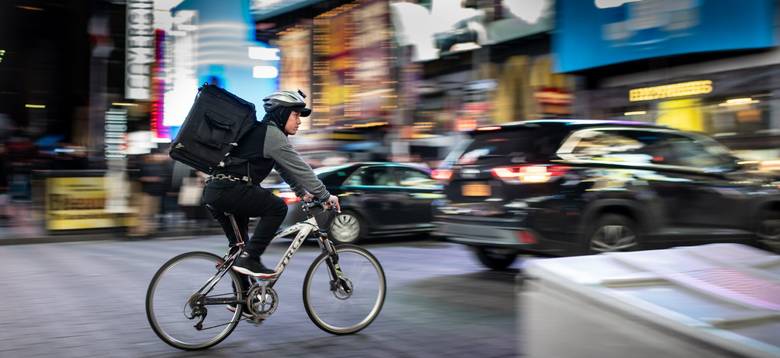
Indian tech startups are racing to meet the needs of buyers in large cities. Online grocery startups and dark stores are making grocery deliveries possible in under 10 minutes. Read to find out what is the need behind the super-fast deliveries.
Dark stores and speedy deliveries
The market’s ever-changing needs and dynamics play a huge role in evolving companies. However, e-commerce firms are not just competing on quality and pricing but also on speedy delivery. It all began with Swiggy’s Instamart. The e-commerce app and its promise to deliver groceries in 15-30 minutes across Bengaluru and Gurugram triggered the game. Soon, Dunzo joined the race with its 19-minute promise and Grofers stepped up the game with a 10-minute promise. Currently, Zepto, a grocery startup is promising a 10-minute delivery promise. The firm is run by 19-year-old Stanford dropouts Kaivalya Vohra and Aadit Palicha.
At some point, you must have wondered how these firms can fulfill their promise in such a short time. The answer is dark stores. They are small or micro warehouses located across the city, closer to a delivery point than large warehouses outside the city. Cities like Delhi and Bengaluru are home to several dark stores. Additionally, each of them manages about 1,500-2,000 products, or stock-keeping units (SKUs).
How can startups manage quick deliveries?
E-commerce startups in the country are gunning to be the fastest delivery service and this is triggering several debates on social media. After all, considering the heavy traffic on Indian roads, especially in big cities, how can these firms get their delivery partners to stick to the tight timeline? Albinder Dhindsa, the CEO of Grofers clarified that his firm was not forcing delivery partners to drive faster. According to RedSeer the market for quick e-commerce in India is around 20 million households. Their report also reveals that the market penetration is close to $0.3 billion in 2021. The industry is expected to grow to $5 billion by mid-century.
Unfortunately, analysts are not sure about the sustainability of the quick-commerce model. According to the report, e-commerce grocery startups are operating with a very thin profit margin. After all, in the long run, the pressure of operating in small timeframes, managing several warehouses, and for just 10 to 20 percent margins are not a good combination. However, while customers appreciate faster deliveries, they might not be willing to pay more for it. Can these quick commerce startups create the addressable market and move forward in the delivery race? Only time will tell.
